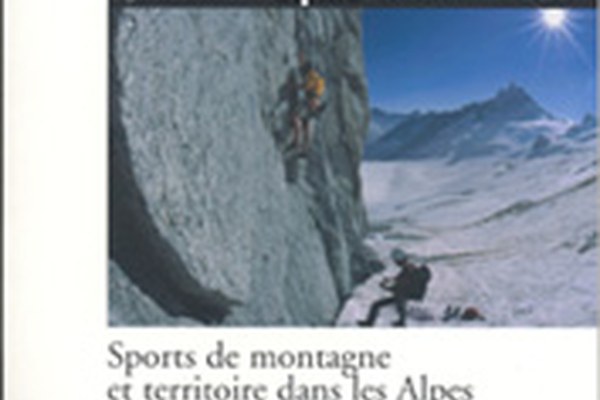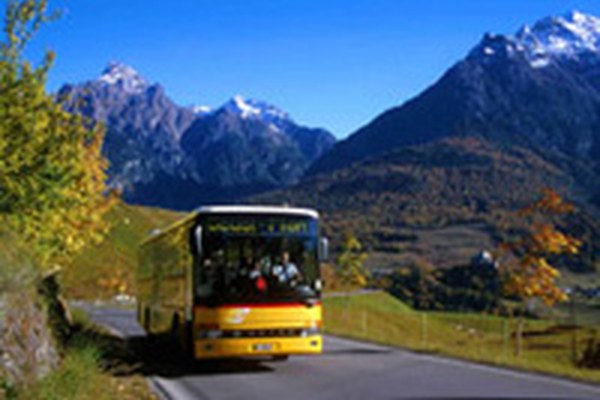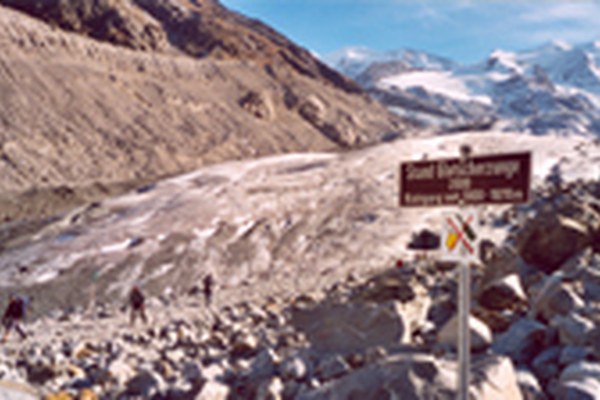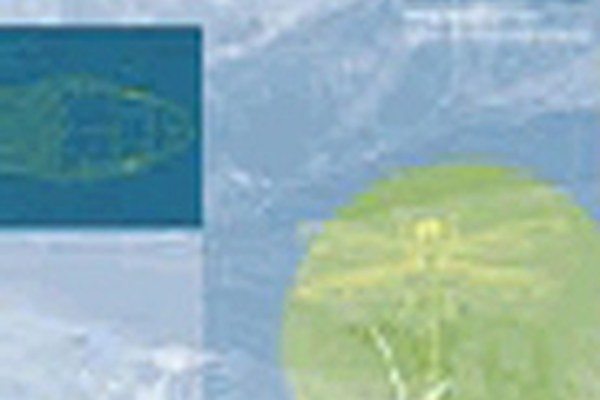News
Mistletoe area boundaries on the ascendant
Scientists at the Swiss Federal Institute for Forest Snow and Landscape Research have found specimens of mistletoe at altitudes of up to 1500 m. It was previously thought that in Switzerland mistletoe grew only in areas below 1000 m above sea level.
Research on the economic significance of the landscape
What is the monetary value of the Alpine landscape for the resident populations and tourists? This question was studied in the framework of Swiss National Research Programme NFP48 "Landscapes and Living Spaces in the Alps".

New publication on mountain sports in the Alps
Mountain sports in the Alps are the focus of the latest English/French publication in the series "Revue de Géographie Alpine/Journal of Alpine Research", which contains five essays from the fields of cultural geography, tourism economy, and sport- and ethno-sociology. Thomas Bieger examines the patterns of demand on the traditional Swiss winter travel market and concludes that while the number of winter sports has greatly increased, demand is concentrated on just a few offers.
2005 international conference on development in rural mountain areas
From 1 - 3 September 2005 the Italian RURALIA association is holding a two-day conference in the Piedmont entitled "Architecture and Landscape in Rural Mountain Areas and their Social and Economic Development". The objective of the conference is to consider proposals for saving villages from decline and rehabilitating rural buildings for new uses.
Green energy in Austria
Things are looking good for green energy in Austria. In the region of Lower Austria, for example, 2004 saw the construction of more biomass heating plants, biogas digesters and wind power plants than ever before. Today about seven percent of the electricity generated in Lower Austria is a product of wind, biomass or biogas.
Record investments in French winter sport areas
In 2004 France's winter sport resorts invested 348 million euros - more than ever before - in refurbishment and upgrade measures. In the last ten years, such investments have increased by about 200 percent compared with only 50 percent for ski area turnover. The number of skier days per season is now stagnating at 63 million.
Major climate change as a threat to the flora and fauna
A new study published by WWF International addresses the threat of rapid climate change and its impacts on the flora and fauna. For many species, the natural mechanisms of adaptation are no longer capable of coping with the sheer speed of change.
South Tyrol: energy-efficient house construction now mandatory
On 12 January a new regulation on climate-friendly house construction took effect in South Tyrol. According to the provisions of this Climate House Ordinance, the Provincial Office for Air and Noise must issue a climate pass for all new housing in South Tyrol showing the buildings' energy classification and thermal heat requirements.
2005 Swiss Mountain Water Award launched
The Governmental Conference of Alpine Cantons (GCAC) has launched the Swiss Mountain Water Award, which is endowed with a total of CHF 50,000. The objective of the competition is to initiate and promote practical water projects capable of making a substantial contribution to increased net output in the mountain areas of Switzerland in commercial, ecological, social and/or institutional terms.
CIPRA conference on cities in the Alpine space
CIPRA's annual conference will be held in Brig/CH on 22 - 24 September. The subject of the 2005 conference is Alpine cities and their role as sustainability actors, with a focus on the following main aspects: - design, management and optimization of relations between Alpine cities and the surrounding areas; - networking, alliances and enhanced co-operation and synergies among Alpine cities to achieve effective positioning in the face of competition from other European locations.
Increased heavy goods traffic on the Brenner route
In 2004 more than fifty percent fewer trucks were carried by the RoLa piggyback services on the Brenner railway than in the previous year. Whereas 140,000 HGVs used the rail link in 2003, the figure for 2004 was a mere 60,000. In contrast, truck traffic on the Brenner motorway increased by a monthly average of twenty percent (in the period January to October).
Satellite handsets for Scotland's first mountain museum
If two Scottish visitor centres have their way, tourists in the Highlands will soon be walking about with hand-held computers. That will help turn Schiehallion Mountain into a dedicated mountain museum, and Helmsdale will become a centre for Scottish gold-panning tours. The postcard-sized computers employ a technology that is similar to the GPS system to be found in modern cars, and they are programmed like traditional museum audio guides.
53rd "Città di Trento" Mountain Film Festival
The 53rd "Città di Trento" Mountain Film Festival is being held from 30 April to 8 May 2005. The festival is devoted to mountain, research and adventure films, with "Arctic & Antarctic - North Pole & South Pole" as the theme selected for 2005.
Artificial high water affects ecology of running water
A new WWF study shows that the artificial high-water (surges) and low-water (sinks) caused daily by hydraulic power plants are having disastrous repercussions on the ecosystem of running water.
From vegetable plots to supermarkets: land consumption in France
The French association for regional planning and rural development has recently published a white paper on the subject of land consumption as a result of urbanisation, entitled "The End of the Landscape?". More and more arable land is being built up with residential buildings and industrial parks, and land consumption is progressing at an alarming pace.
Mount Everest put forward for UNESCO World Heritage in Danger List
The Mount Everest region is at risk from global warming and should therefore be included on the UNESCO's World Heritage in Danger List. Mountaineers and representatives of the environmental group Friends of the Earth submitted a petition to the UNESCO Committee at the end of November.

Deregulation of public services accentuates regional polarisation in Switzerland's alpine regions
A new study by the Swiss National Research Programme NFP 48 entitled Landscapes and Habitats of the Alps has shown that the deregulation of public services has accentuated inequalities between centres and peripheries in alpine regions.
Mountains in the Mediterranean Region Project presented at the IUCN Congress
Italy's Environment Minister presented the Mountains in the Mediterranean Region Project at the IUCN Congress held in Bangkok from 17 to 25 November.
8th Alpine ministerial meeting: mixed results
At the 8th Alpine Conference held in Garmisch-Partenkirchen/D on 16 November the Environment Ministers of the alpine states were unable to reach agreement on drawing up a legally binding "Population and Culture" protocol for the Alpine Convention. In the area of transport however the alpine states intend to set a new direction.

Glaciers melting faster than anticipated
A new study by Zurich University using satellite images to analyse the surface area of 930 glaciers has shown that Switzerland's glaciers lost around 18% of their surface area between 1985 and 2000.
Storm Lothar not an ecological disaster
Storm damage does not pose a threat to the long-term conservation of Switzerland's forests; rather it contributes to forest renewal and promotes biodiversity.
Certification system for sustainable hotel establishments
The Ibex Label is to be used to certify Swiss hotel establishments which excel through particularly sustainable and social management. Depending on achievements one to five of these Ibexes are to be awarded by the Association for Economy, Ecology and Society.

New publications show: biodiversity still on the wane
The "Biodiversität in der Schweiz" (Biodiversity in Switzerland) study published by the Biodiversity Forum Switzerland has concluded that genetic diversity and biodiversity are more at risk in Switzerland than in most other European countries.
Who's picking up the bill? New study on external transport costs in Germany and Europe
A study published in early October on the external costs of transport in the EU, Switzerland and Norway by the research institutes IWW (Karlsruhe/D) and Infras (Zurich/CH) shows that the transport system in Germany causes some €150 bn in health and environmental costs each year.
As free as a bird? Light pollution a hazard for migratory birds
More and more migratory birds are falling prey to night-time lighting conditions as they fly south. A closed cover of low-lying fog such as the one that prevailed over large areas of Switzerland in mid-October seriously disrupts the migratory birds' ability to orientate themselves; combined with towns and villages that are brightly lit at night it can represent a death trap for the birds.
International Mountain Day focuses on conflict resolution
December 11 is to be celebrated worldwide as International Mountain Day. This year the main focus of interest is the overriding significance of peace for sustainable development.
Landmark NEAT Project under pressure to cut costs
According to the Swiss Federal Office for Transport total costs of Switzerland's "New Alps Transversal Route" (NEAT) are likely to be CHF 302 m higher than calculated in the summer, due essentially to geological fault zones, uncertainties about the planned route and costly rail securing techniques.
More protection against GMO crossover
The Environment Ministers of Switzerland, Austria, Liechtenstein and Germany have called for genetically modified plants to be regulated by cross-border legislation. At the traditional annual meeting held in Potsdam on 16 September the four Ministers discussed not only ecological and transport policy issues but also how to deal with gene technology in agriculture.
Are the Alps fit for the future? "Future in the Alps" project gets underway
At the Alpine Week 2004 in Kranjska Gora, Slovenia, the International Commission for the Protection of the Alps (CIPRA) presented its new project entitled "Future in the Alps", a broad-based project aimed at promoting sustainable development in the alpine region.
Greater co-operation to protect against natural hazards
Switzerland, Germany, Austria and Liechtenstein intend to co-operate even more closely to protect against natural hazards in the Alps. This decision was taken by the four German-language Environmental Ministers at this year's meeting in Potsdam/D. The Ministers concurred that natural catastrophes in the Alps were likely to occur more and more often despite all the efforts being made with regard to climate protection.